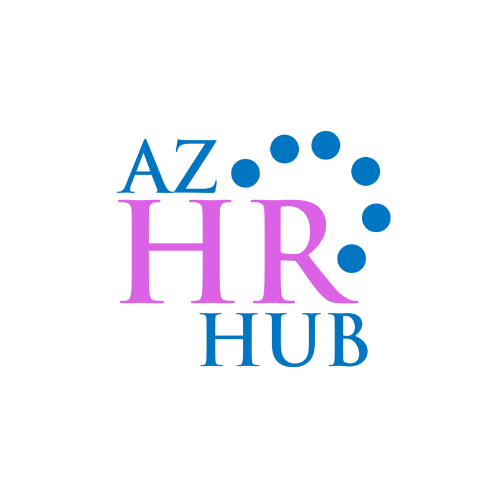Navigating the HR Compliance Landscape
In the ever-evolving realm of human resources, staying on top of HR compliance is non-negotiable. As regulations shift and workplace dynamics evolve, organizations must be proactive in ensuring they meet legal requirements. In this guide, we delve into crucial HR compliance considerations, offering insights, best practices, and practical tips to keep your organization compliant and thriving.
Understanding your Legal Requirements:
In the fast-paced world of HR compliance, legal updates are always cropping up. From federal to state regulations, it's crucial for employers to stay in the know to sidestep pitfalls and keep things compliant. Start by subscribing to relevant compliance update newsletters for your work locations. And for that extra peace of mind, consider teaming up with an HR Consultant or legal advisor. They'll help you keep your policies up-to-date and ensure you're handling employee matters like a pro.
Best Practices in HR Compliance:
While legal requirements provide a foundation, best practices elevate your HR compliance strategy.
To enhance HR compliance efforts, focus on robust practices in documentation, record-keeping, and employee communication:
Comprehensive Documentation:
Develop clear policy manuals for company guidelines.
Regularly review and update documents to stay current.
Efficient Record-Keeping:
Implement a centralized system for secure record-keeping.
Explore digital solutions like HRIS to streamline and reduce errors.
Training Programs:
Conduct regular training for HR staff and employees on compliance.
Develop interactive modules for better understanding.
Transparent Communication:
Establish clear communication channels for employee queries.
Regularly update employees on policy changes and compliance importance.
Auditing and Monitoring:
Conduct regular internal audits to ensure compliance.
Define and monitor KPIs related to compliance.
Technology Integration:
Invest in HR software with compliance features.
Leverage digital platforms for communication and training.
Employee Feedback Mechanism:
Implement anonymous reporting for compliance concerns.
Gather feedback on the effectiveness of compliance efforts.
Continuous Improvement:
Conduct post-incident analysis for root cause identification.
Establish a feedback loop for continuous policy improvement.
By adopting these methods, organizations can foster a compliance culture, ensuring well-informed employees, adherence to policies, and accurate record maintenance.
Tips for Seamless Compliance Management:
To streamline HR processes and exceed compliance expectations, organizations can adopt practical strategies:
Digitalization: Shift to digital documentation and cloud storage for centralized access.
HRIS Implementation: Invest in an HRIS for automation, e-learning, and electronic signatures.
Training Programs: Develop comprehensive and regularly updated training, utilizing e-learning platforms.
Clear Communication: Establish transparent channels for policy updates and implement a user-friendly HR portal.
Workflow Automation: Identify and automate repetitive HR tasks to enhance efficiency.
Regular Audits: Conduct internal audits and implement real-time monitoring for prompt issue resolution.
Integrated Payroll: Integrate HR processes with payroll systems for accurate calculations and compliance.
Mobile Accessibility: Ensure mobile accessibility for remote work and develop secure mobile apps.
Employee Self-Service: Provide tools for employees to manage HR transactions independently.
Data Security Measures: Prioritize data security through encryption, multi-factor authentication, and regular audits.
Regular Policy Reviews: Schedule regular reviews of HR policies and communicate changes promptly.
Feedback Mechanisms: Establish channels for employee feedback to identify areas for improvement.
These strategies empower organizations to create efficient HR processes, contributing to a compliant and agile workforce.
Industry-Specific Compliance Challenges:
Navigating industry-specific HR challenges requires a strategic approach. Start by:
Understanding Industry Regulations: Research and comprehend the specific regulations governing your industry. This forms the foundation for tailored HR practices.
Benchmarking Best Practices: Identify industry leaders and study their HR practices. Benchmarking against successful peers provides valuable insights for your own strategies.
Engaging Industry Networks: Join industry-specific HR networks and forums. Engaging with peers allows you to share experiences, challenges, and best practices unique to your sector.
Customizing Policies: Tailor HR policies to align with industry requirements. Customization ensures that your practices not only comply with regulations but also suit the nature of your business.
Leveraging Industry Resources: Utilize resources provided by industry associations, chambers of commerce, or specialized HR publications. These resources often offer sector-specific guidelines and updates.
Staying Informed about Trends: Keep abreast of industry trends, especially those impacting HR. Understanding the evolving landscape allows you to proactively address emerging challenges.
Collaborating with Industry Experts: Seek guidance from HR consultants or professionals with expertise in your industry. Their insights can help you navigate complexities and implement effective HR strategies.
Regularly Reviewing Practices: Given the dynamic nature of industries, regularly review and update your HR practices. Ensure they align with the evolving demands and regulations of your specific sector.
Remember, the key is to be proactive, stay informed, and tailor your HR approach to the unique challenges and dynamics of your industry.
By staying informed, adopting best practices, and leveraging technology, your organization can navigate the compliance landscape confidently. Ensure your HR practices align with the latest regulations to foster a compliant, ethical, and thriving workplace.
Ready to elevate your HR compliance strategy? Stay tuned for upcoming resources dedicated to empowering your organization in its compliance journey. Compliance is not just a requirement; it's a commitment to excellence.

